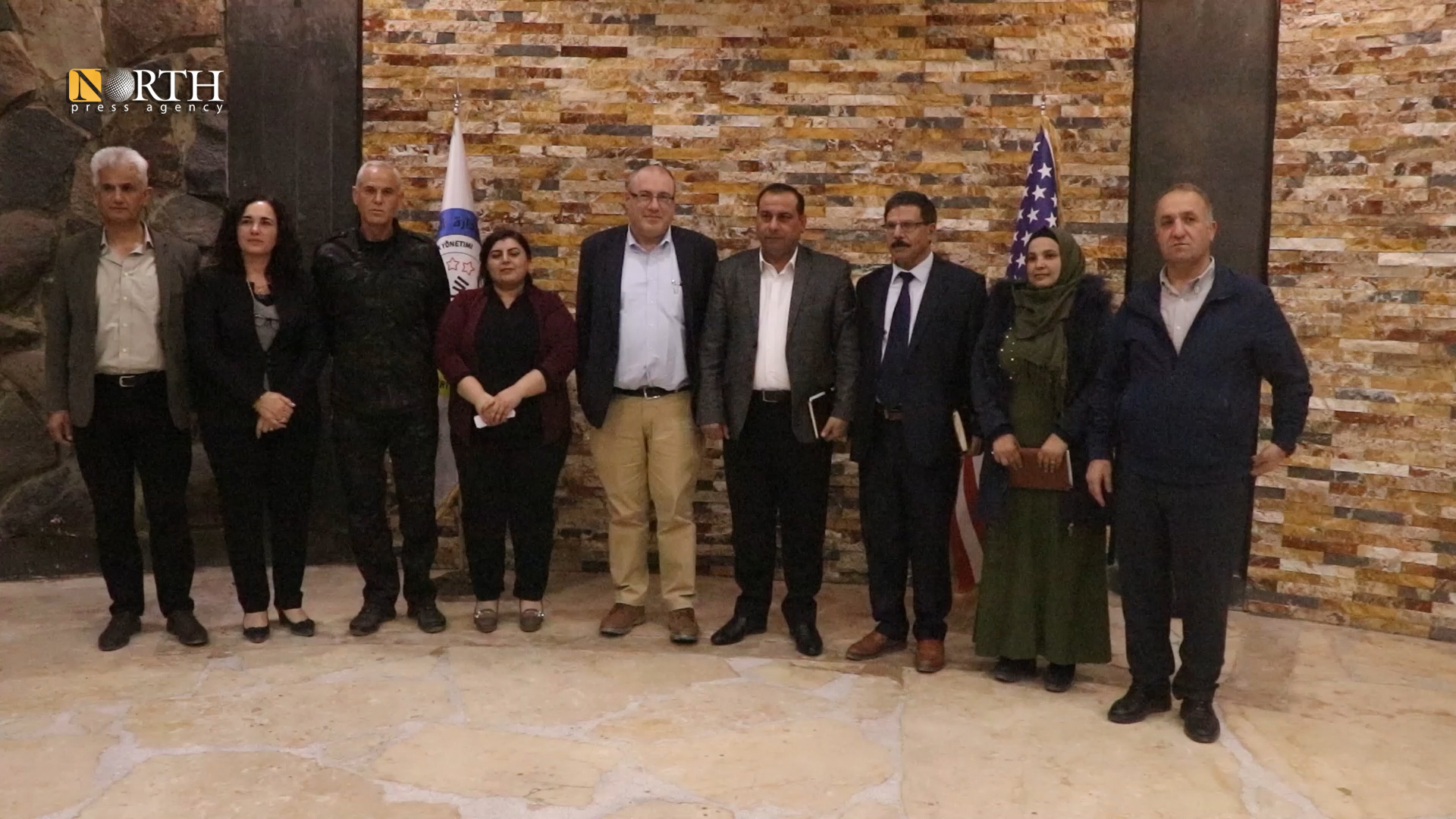US State Department promised to provide support to region: AANES
HASAKAH, Syria (North Press) – We conveyed the needs of the residents of the region to officials in the US State Department, amid promises of support and assistance, an official of the Autonomous Administration of North East Syria (AANES) said yesterday.
A delegation from the US State Department visited northeast Syria yesterday, and held two separate meetings with the command of the Syrian Democratic Forces (SDF) and officials of the AANES at the headquarters of the SDF in Hasakah.
The delegation was headed by Ethan Goldrich, Deputy Assistant Secretary of State for Near Eastern Affairs, accompanied by a number of diplomats and military leaders who came from the USA.
The delegation met with the SDF Commander-in-Chief, Mazloum Abdi, the president of the Executive Committee of the Syrian Democratic Council (SDC), Ilham Ahmad, and the co-chairs of the AANES Executive Council, Berivan Khaled and Abd Hamed al-Mehbash.
The co-chairs of the AANES Executive Council, Berivan Khaled said they demanded the US to show a position regarding the Turkish threats against the areas of northeastern Syria.
“We discussed the economic and health crisis that the region is going through, as well as the Turkish violations,” she told North Press.
Khaled indicated that her delegation called for providing support and assistance to overcome the crises that the region is going through.
She added that the US delegation, in turn, promised to provide support at various levels.
The co-chair of the Executive Council stated that they conveyed the problem of water cutoff by the Turkish state to American officials, which affects agriculture in the first place.
Since February, Turkey has continued to block the flow of the Euphrates River towards the Syrian and Iraqi lands, amid regional and global warnings of a health and agricultural disaster in the region.
Khaled pointed out that her delegation discussed the shortage of wheat stocks and its impact on the provision of bread, the mechanism of bringing investors to the region to revive it economically, and how to exempt them from Caesar Act impacts.
Former US President Donald Trump signed Caesar Act in late 2019, which included imposing sanctions on individuals and entities supporting the Syrian government, which Washington accuses of violating human rights.
Khaled stated that they talked about the closure of the crossings in the AANES’s areas, “The closure of the crossings in northeastern Syria also affects the economic situation in the region, the region is besieged from several directions, and there is no humanitarian outlet.”
She revealed that they demanded the opening of Tel Kocher (al-Ya’roubiya) crossing, “We call for the opening of Tel Kocher crossing so that people of northeastern Syria can have some kind of economic recovery, which could improve the living situation in northeastern Syria.”
In July, Ghayath Na’isa, a Syrian political analyst, said the crossings in Syria have become a conflict and competition card between the intervening countries in Syria.
He added, in an audio statement to North Press, that the issue of the crossings has a direct link with the interests of the major regional countries directly, and is part of their strategies in making deals and negotiating among them.

